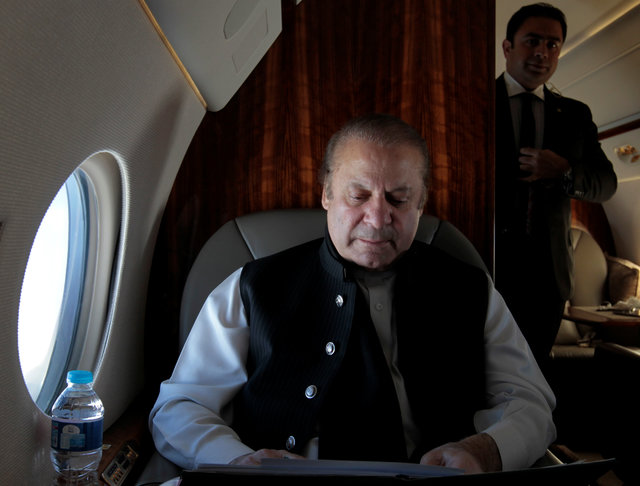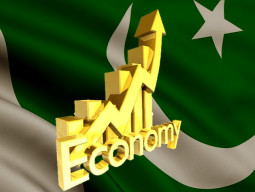
According to the International Budget Partnership (IBP), an international network dedicated to making public finance systems worldwide more transparent and accountable, Pakistan’s public participation score is a dismal low of 10/100. This means that public does not have input in the budget process.
Govt increases budget for R&D work
Since ordinary people or even their elected representatives have little access to budget information and opportunities for participation, most of the budgetary measures are of elitist concerns and favour the status quo, which suits the ruling elite. If the budget-making process were more transparent and inclusive, undoubtedly the allocation of resources would be better geared to confronting the problems facing the country.
This article outlines three most serious problems, which Pakistan is facing but which get little attention from the policy-makers. Indeed, the budgetary policies further exacerbate the current situation.
Alleviating poverty
According to the 2016 Multidimensional Poverty Index (MPI) report, four out of ten Pakistanis are living in acute poverty. Given such a high level of poverty, the top priority of the government should be to tackle this menace.
It is well established that tax policies have a direct correlation with the prevalence of poverty and employment creation in a country. Indirect taxes such as customs duty, sales tax and withholding taxes are considered regressive as they hit middle and lower classes the most.
Unlike most other countries, Pakistan’s budget for each of the past four years has been successively relying on larger indirect taxes. This worsens poverty and unemployment. For example, according to the 2015-16 FBR Yearbook, in 2015-16 the customs duty collection recorded a growth of 32.6%, followed by sales tax (21.7%) whereas income tax collection showed the least growth at 15.3%.
Even this small growth in income tax was mostly because of increased collection of withholding taxes on imports, contracts and utilities. Since 68% of the income tax revenue comprises withholding taxes, it also becomes an indirect tax.
Indirect taxation allows the rich to get away without paying their due share and shifts the tax burden to the poor.
Education
With 5.6 million children out of primary schools – the most absolute number of children out of school anywhere in the world and education spending far below minimum benchmarks, the United Nations Global Education Monitoring Report 2016 says that Pakistan is more than 50 years behind in its targets for primary education and 60-plus years behind for secondary education.
Despite a clear commitment by the PML-N in its election manifesto to raise expenditures on education to 4% of GDP, the total allocation by federal and provincial governments for education last year was Rs790.704 billion, or just 2.83% of GDP, the lowest in South Asia.
According to Alif Ailaan – a campaign for education reform, if education were to get 4% of GDP, the allocation in the 2017-18 budget would need to be Rs1,177 billion, implying an increase of at least Rs387 billion in one year. If the federal and provincial governments allocated this additional funding, it would be a great step forward.
Water
According to UK-based WaterAid, around 16 million people in Pakistan do not have access to clean water and because of inequities in the system, the poor have to pay more for this essential commodity.
Government expenditure on water and sanitation has been one of the lowest in the world – stagnant at 0.22% of GDP against 0.57% in India.
The last major water storage dams at Tarbela and Mangla, built more than 40 years ago, store only 30 days of average water demand, compared to 1,000 days for Egypt and 220 days for India.
Successive governments have been planning to build multipurpose dams on the Indus River, but could not muster the required resources.
Govt likely to slash health spending in next fiscal
Even with the projected CPEC funding of over $50 billion, building of dams is not considered a priority. Most of the funding is going for fossil fuel-based energy plants and roads.
It is high time the budget-making process becomes more transparent as well as fair. Policies that put a greater tax burden on the poor compared to the rich need to be reversed.
Allocation of resources to social sectors such as education, health and sanitation should at least match neighbouring countries. Spending on defence and roads should not be the only priority areas.
The writer served as Pakistan’s ambassador to WTO from 2002 to 2008
Published in The Express Tribune, May 22nd, 2017.
Like Business on Facebook, follow @TribuneBiz on Twitter to stay informed and join in the conversation.







1732794933-0/Express-Tribune-(1)1732794933-0-270x192.webp)
1732084432-0/Untitled-design-(63)1732084432-0-270x192.webp)

1732789727-0/BeFunk_§_]__-(68)1732789727-0.jpg)






COMMENTS
Comments are moderated and generally will be posted if they are on-topic and not abusive.
For more information, please see our Comments FAQ